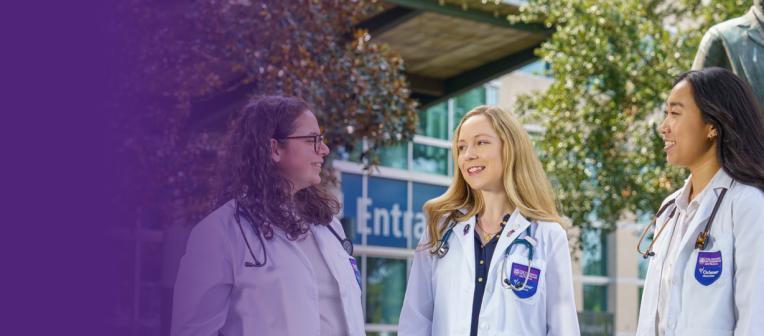On this new Brisbane episode of White Coat Wednesday, we sit down with Dr Charles Kantrow, a New Orleanian, our deputy head of curriculum, head of Lejeune society and physician in pediatrics and child health.
Interviewed by Sarah Olsen, a second-year UQ-Ochsner student, we get the opportunity to speak with Dr Kantrow during his visit in Australia. When commencing the UQ-Ochsner program, each student gets assigned to a society and that forms an additional support and mentorship that the student will carry until graduation and beyond. The Society Heads usually travel to Brisbane from New Orleans to meet in person with each student from their society and start forming these strong relationship where they can get support and guidance through academic or personal challenges.
Being a Society Head is a crucial contribution to our students’ success so we dive into how the opportunity came about for Dr Kantrow. Sarah discusses with him what aspects of this role are most fulfilling and particularly challenging.
As a pediatrics and child health physician working at Ochsner Health, Dr Kantrow shares some advice for students pursuing a career in the field of pediatrics, starting with understanding that medicine is a life long learning journey. Dr Kantrow is the Medical Director of Ochsner's Myelodysplasia Team which is a multidisciplinary approach to caring for the children and their families with the aim to reduce disruptions to the families’ lives.
When asked about balancing teaching medical students and practice, Dr Kantrow shares the benefits of bringing the students along for the journey and learning with the patients each day. Watching the students receive positive feedback from families is a very rewarding element of the teaching journey.
Dr Kantrow’s medical career is extensive so we take this opportunity to ask him to reflect on some of the significant changes that occurred in the field of pediatrics since he finished medical school. Although there are many, he highlights the many vaccines that have been developed and have saved so many children’s lives. Looking into the future, there are so many fantastic developments making pediatric patient care progress significantly. A very exciting space to watch!
Read more about our medical societies and their heads.




